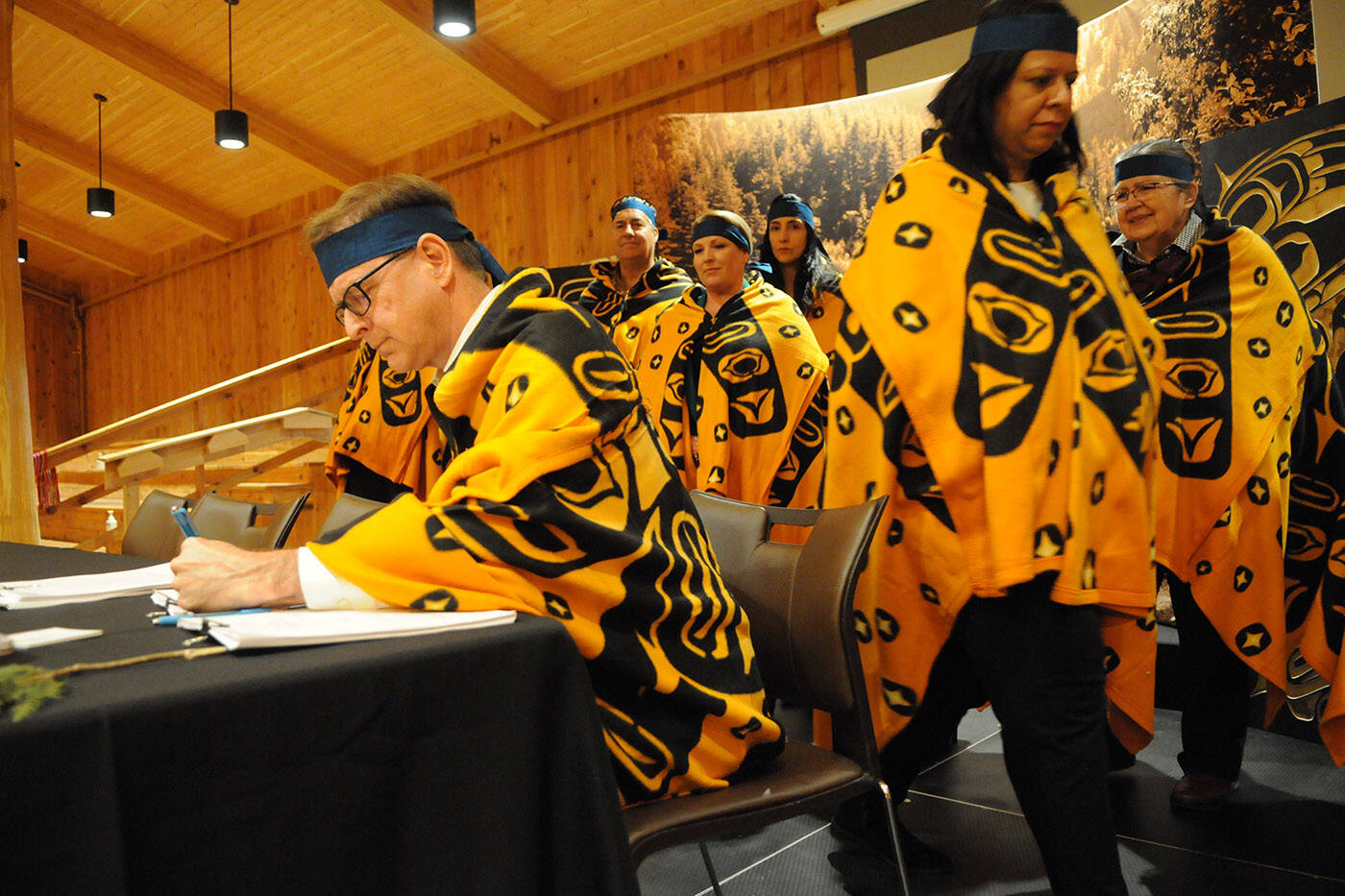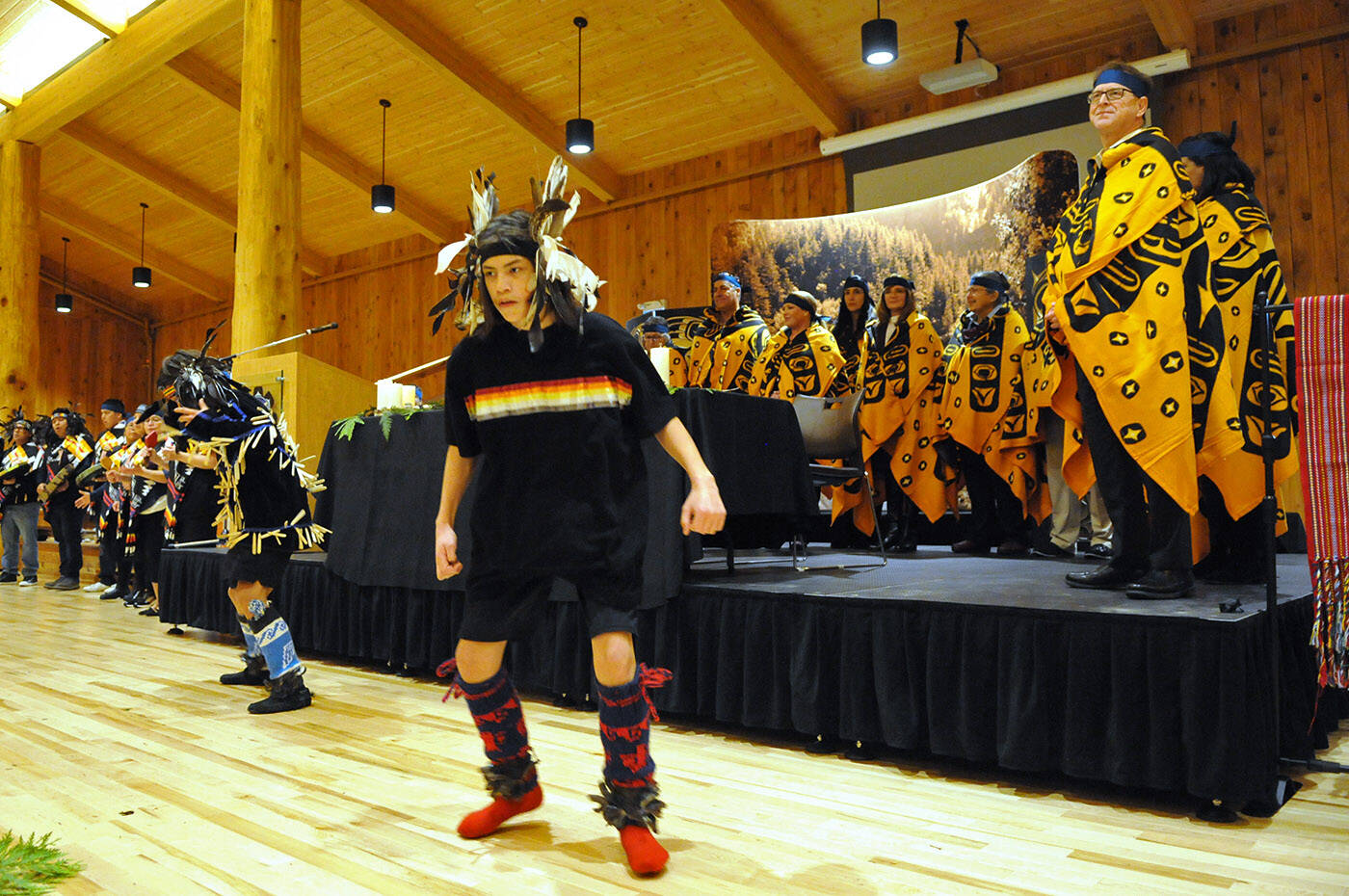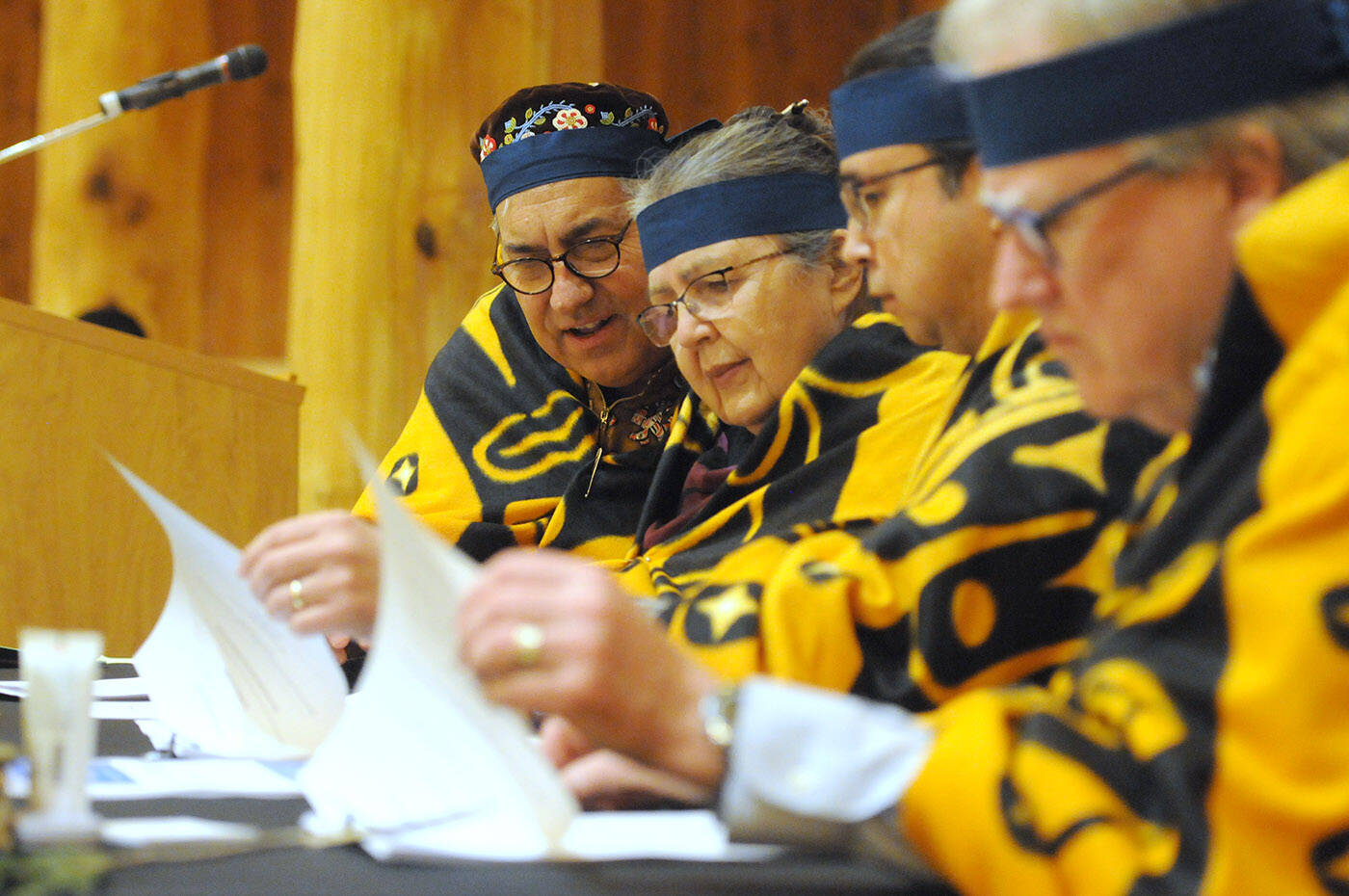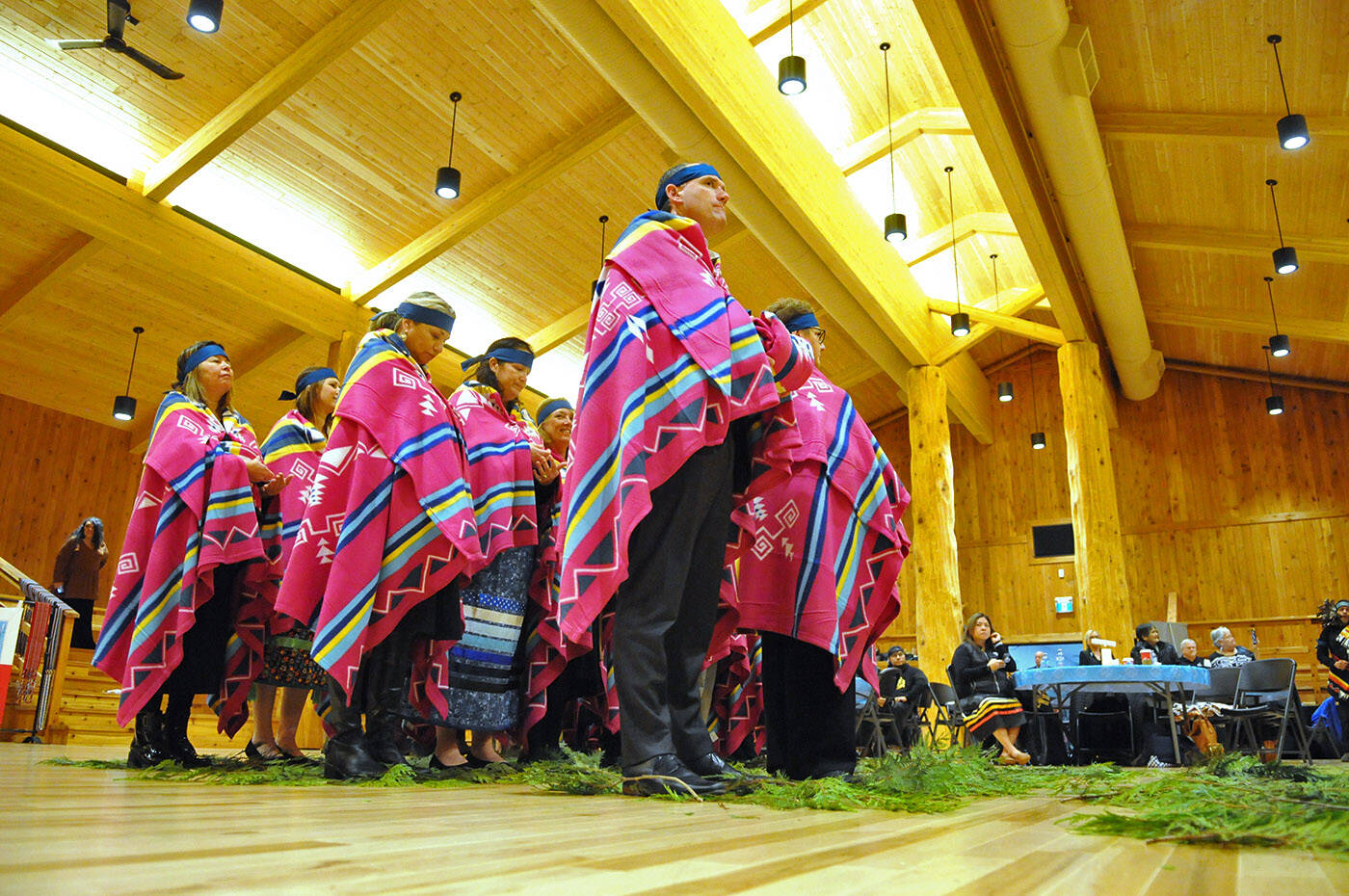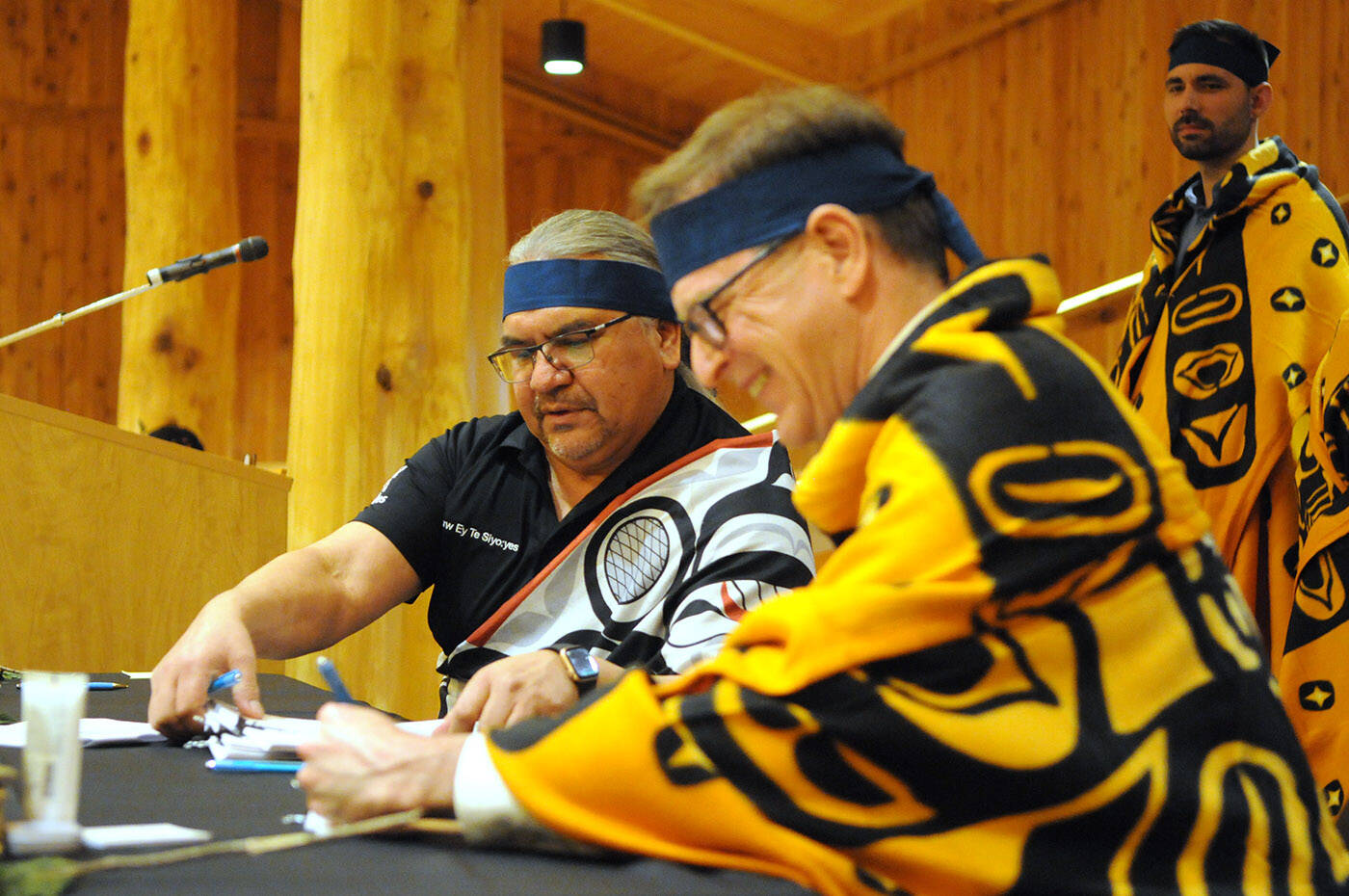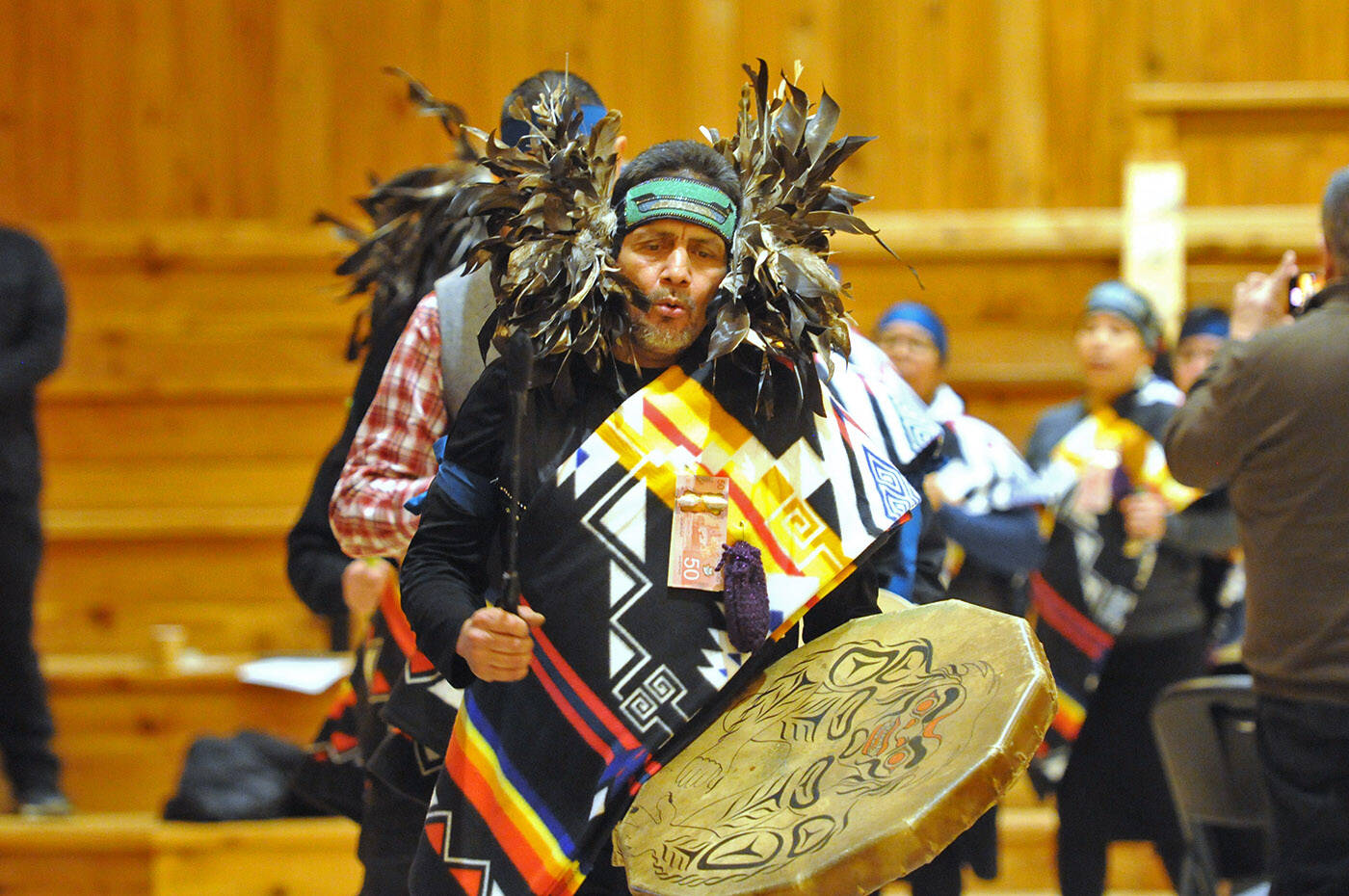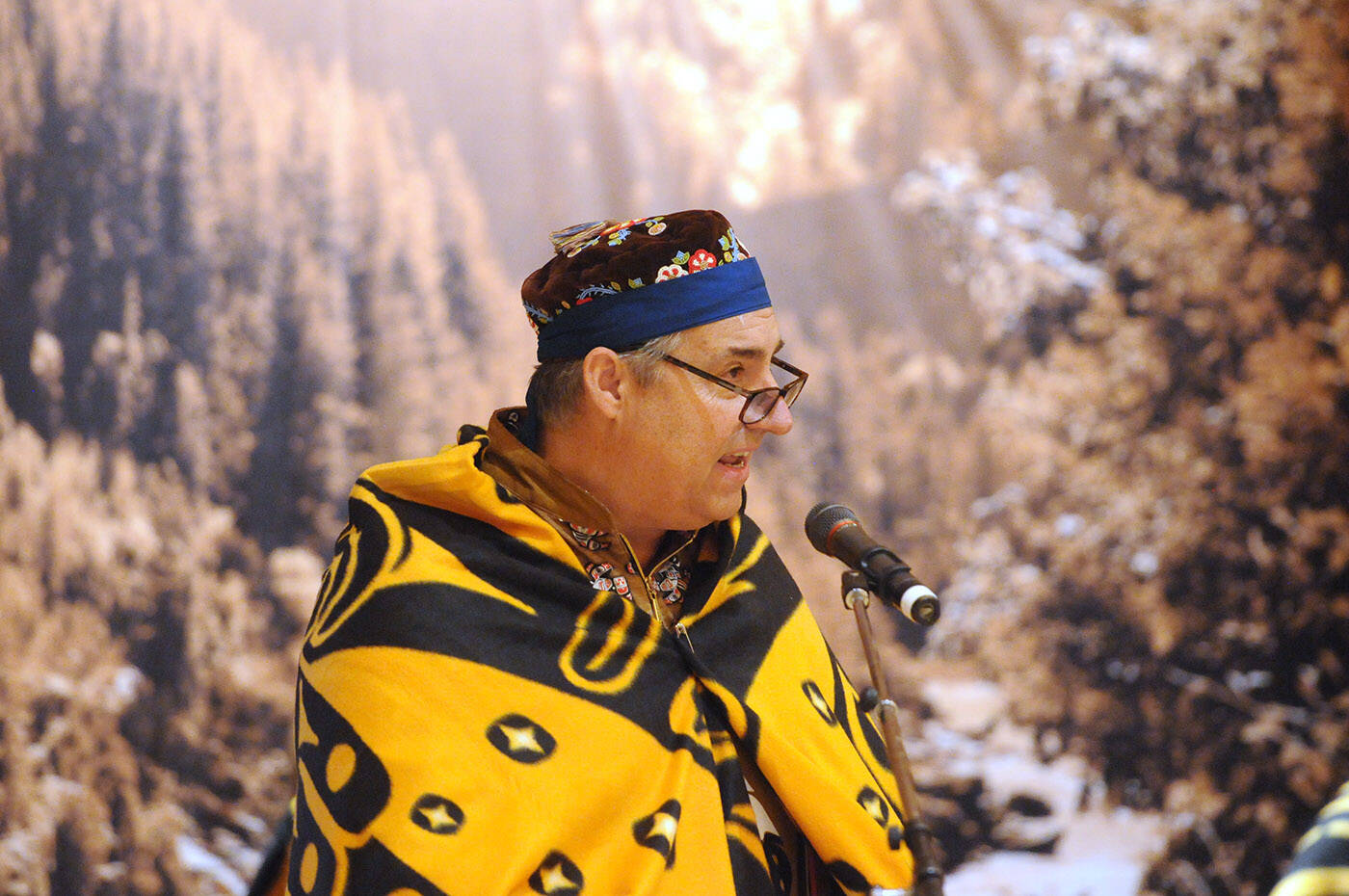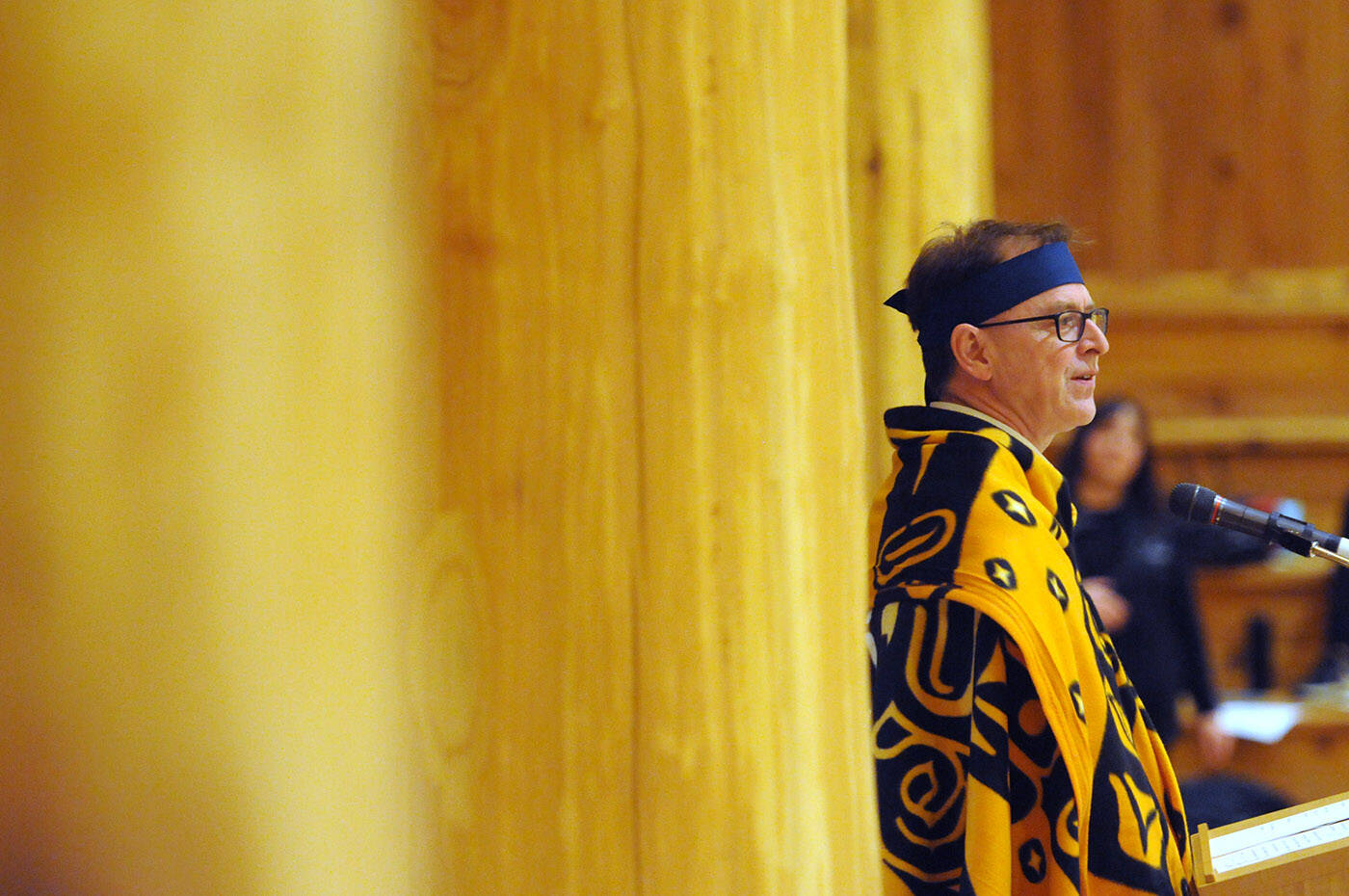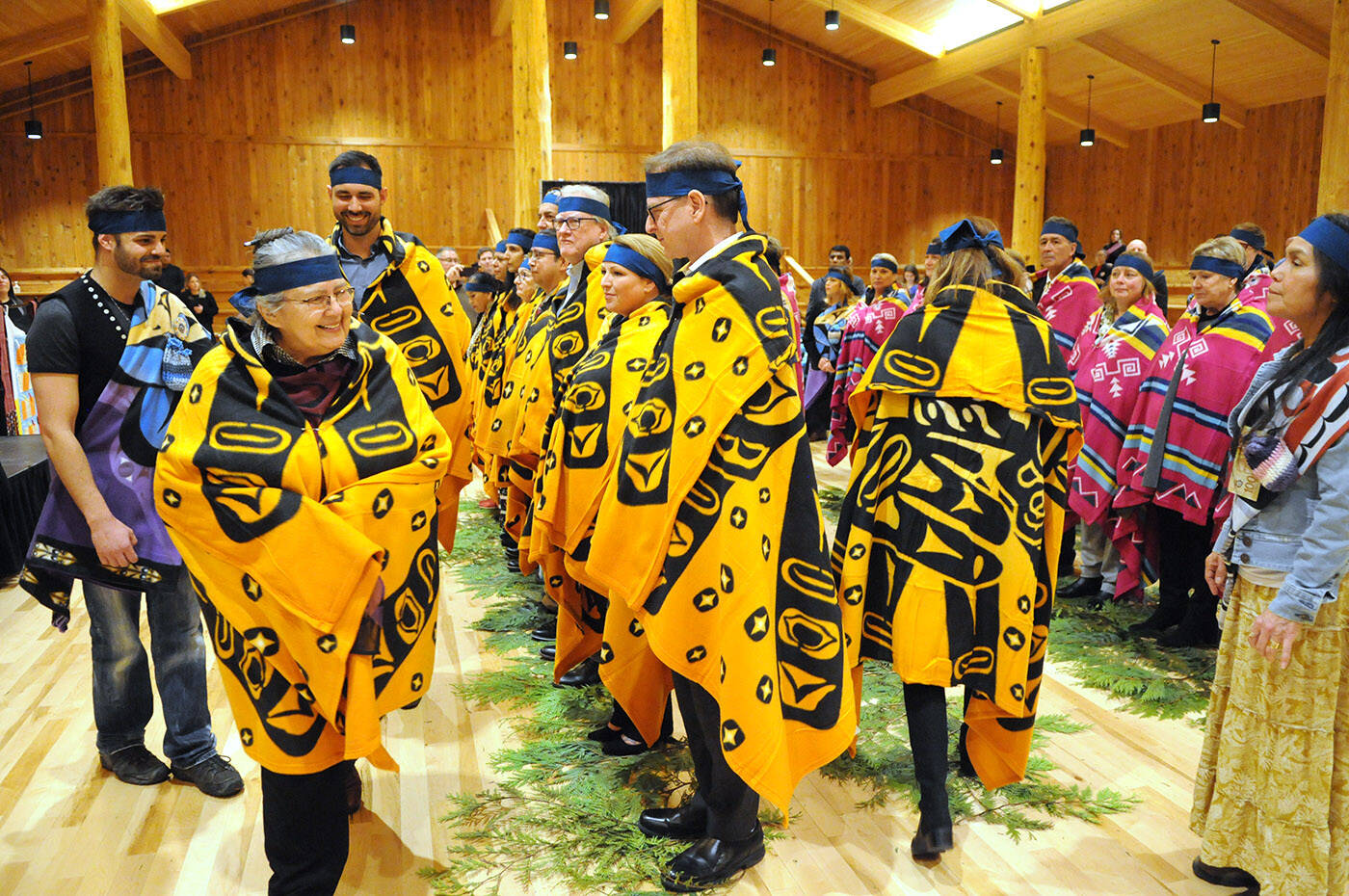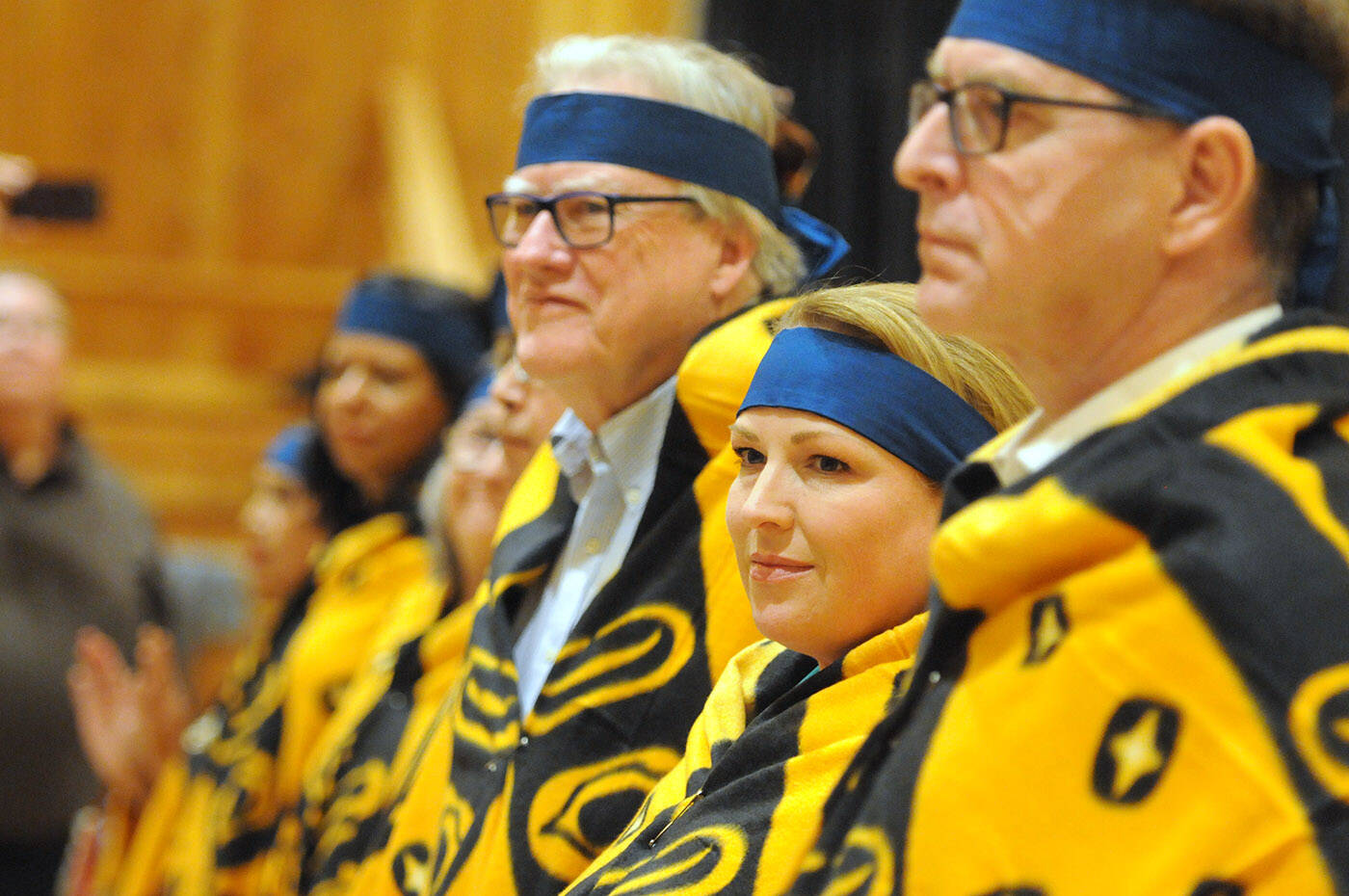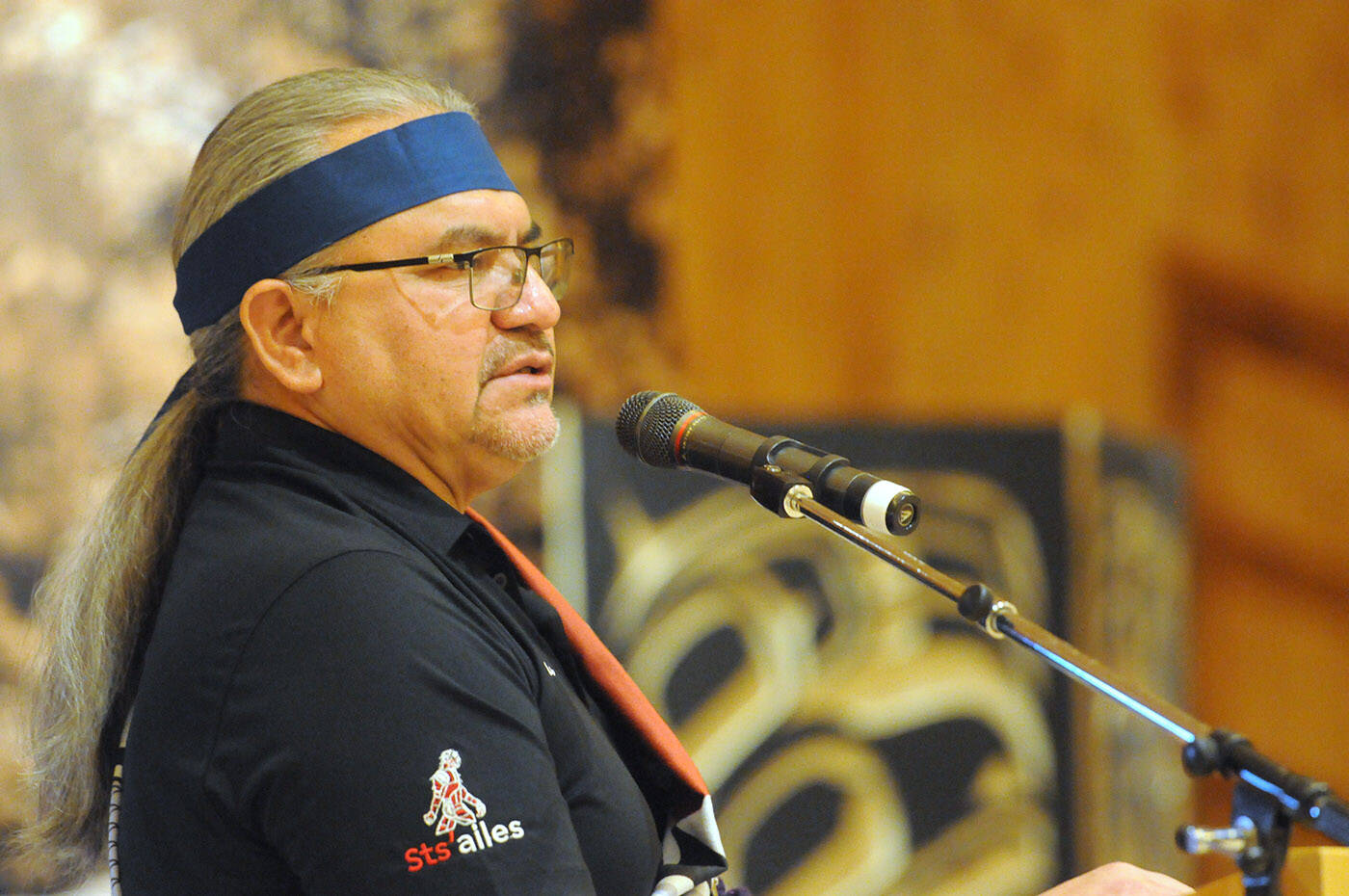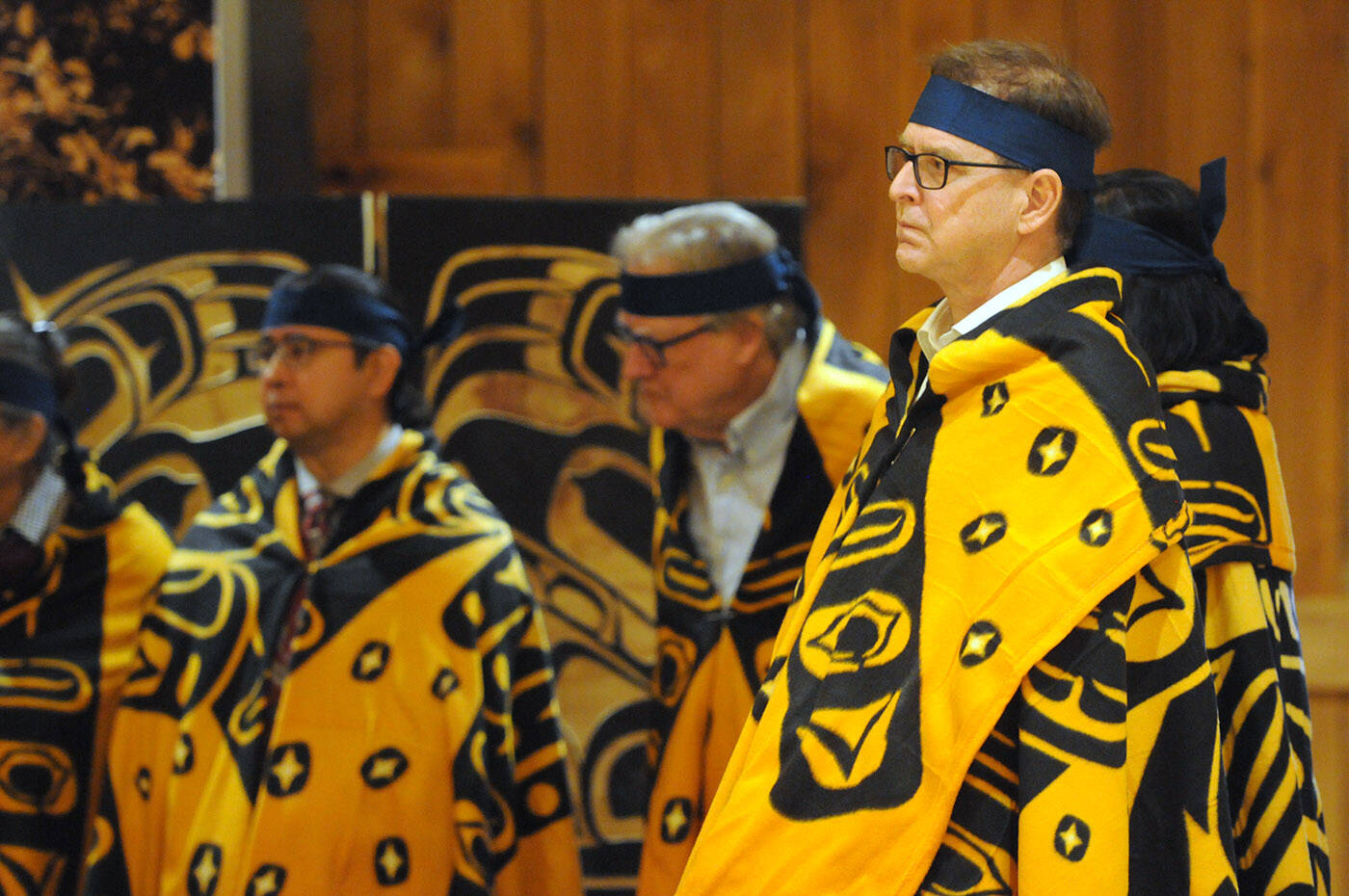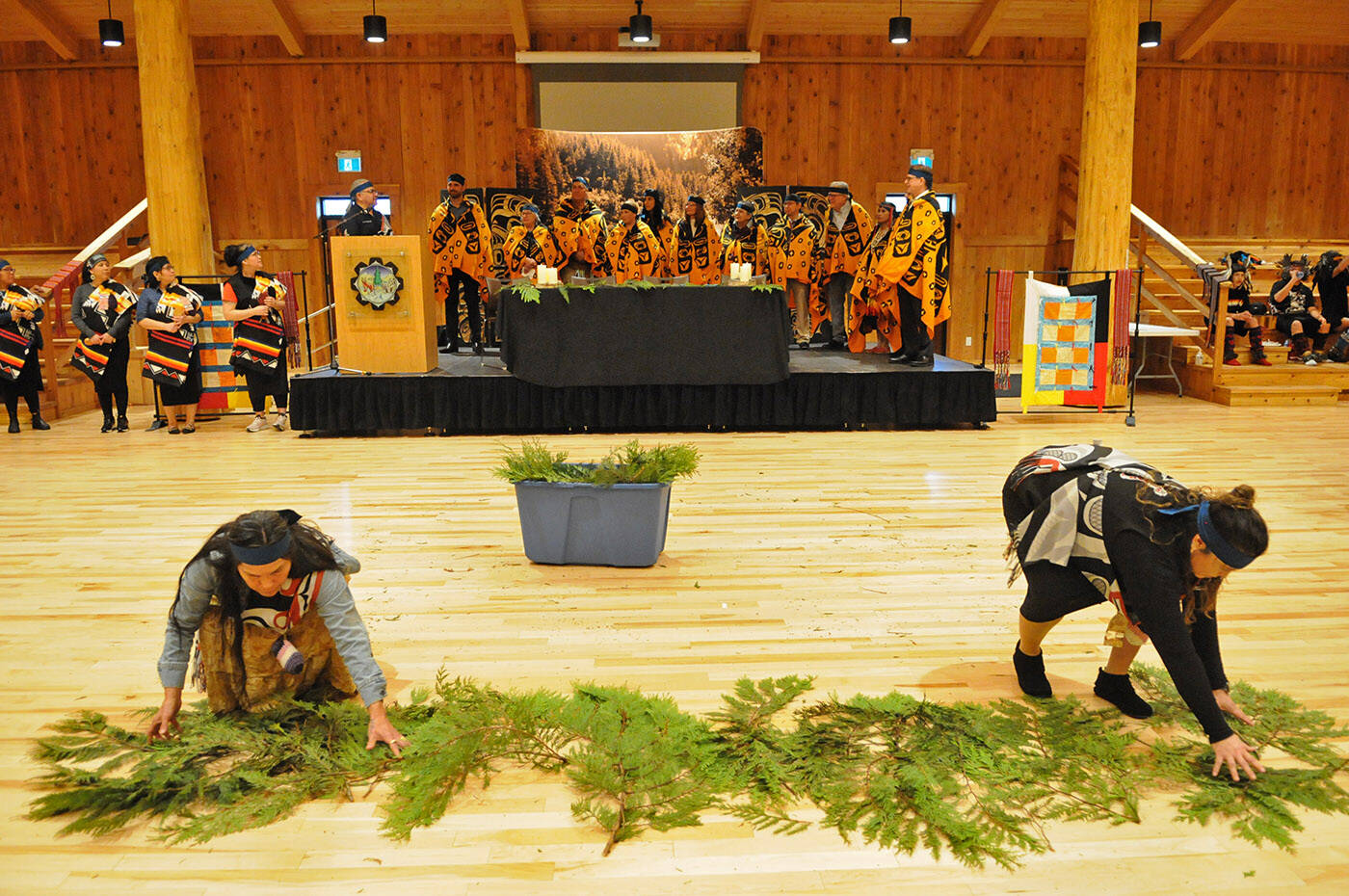Improving health care for Indigenous peoples in the Fraser Salish region, and addressing systemic racism are goals of a renewed Fraser Partnership Accord.
B.C. Health Minister Adrian Dix signed the accord with reps from Fraser Salish Regional Caucus, Fraser Health, and Métis Nation B.C. at the Shxwhá:y Village Cultural Centre, near Chilliwack, in a traditional longhouse ceremony on Feb. 1.
“As Minister, I think we’ve made a little bit of progress but Indigenous-specific racism exists in our health care system, and it is only through committed partnerships like this one we are signing, the Fraser Partnership Accord, that will see us continue down our road to eliminating racism in our health care system,” Dix said.
The accord cements a “full and meaningful partnership” in both decision-making and service delivery “for the betterment of health outcomes for all Indigenous Peoples living in the Fraser Salish region.”
The concept of Letse’mot, meaning “everyone working together” in Halq’eméylem, is embodied in the details of the accord signed by the Fraser Salish Regional Caucus and, for the first time, Métis Nation B.C., making them full and equal partners at local and regional levels.
The agreement the reps signed makes a ground-breaking pledge to “do better, be better” in a way that’s never been enshrined before.
Grand Chief Willie Charlie, explained elements of the signing ceremony to those attending in the longhouse, and underlined that thanks to the accord they will be involved in the decision-making to transform the system.
“The accord is a step in the right direction to ensuring we don’t repeat the wrongs of the past and that we create a better future of care for everyone,” Charlie said. “This collaborative approach allows Indigenous voices to be part of that change.”
Métis Nation B.C. Health Minister Louis de Jaeger said it was the first accord to include the Métis Nation B.C. as a signatory working toward more equitable practices.
“We must work collaboratively amongst our Nations to protect our people and advocate for health equity and culturally safe spaces at every point of contact,” de Jaeger said. “Everything around us evolves over time, so does practical health care and so do we.”
The accord was first signed in 2011, and amended in 2020. The updated version strives to incorporate traditional cultural ways and modern health practices to improve health and wellness for all people in B.C.
“On behalf of Fraser Health, we are proud to sign this partnership accord that will empower our Indigenous communities with greater involvement over the delivery of health services,” said Jim Sinclair, Fraser Health board chair. “This collaboration marks a significant stride towards fostering culturally safe and racism-free care in all of our facilities.”
The Fraser Salish Regional Caucus represents the Stó:lō Nation, Stó:lō Tribal Council and independent communities in the Fraser Salish region with the goal of supporting the well-being of all First Nations people living in the region, regardless of nationhood, status or residence.
Métis Nation British Columbia is the governing Nation for Métis people in B.C. and represents more than 24,000 registered Métis citizens. More than 6,200 Métis live in the Fraser Salish region.
The accord dovetails with the United Nations’ Declaration on the Rights of Indigenous Peoples (UNDRIP) and B.C.’s Declaration on the Rights of Indigenous Peoples Act (DRIPA), and aims to establish a culturally safe health-care system in B.C. that is free of Indigenous-specific racism through the implementation of advice and recommendations made in the In Plain Sight report.
READ MORE: In Plain Sight report had recommendations for systemic racism
Breaking NewsFraser HealthMetis
